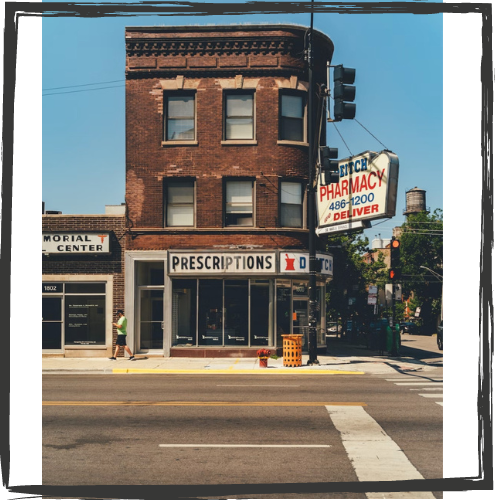By Ahmed Aboulenein, Reuters
Drug wholesalers are challenging psychiatric prescriptions available to small pharmacies
A crackdown by U.S. drug wholesalers in response to the opioid crisis is preventing some pharmacists from dispensing a combination of stimulants and sedatives routinely prescribed by psychiatrists to help patients manage conditions like anxiety and attention-deficit/hyperactivity disorder (ADHD).
Three main U.S. pharmaceutical wholesalers – AmerisourceBergen Corp, Cardinal Health Inc. and McKesson Corp – tightened monitoring of suspicious orders from pharmacies in July as part of a $21 billion nationwide opioid settlement with attorneys general from 46 states, the District of Columbia and five territories.
Five independent pharmacists in five different states said in recent months they were notified by the wholesalers that they would be cut off from the distribution of all controlled substances after filling prescriptions for psychiatric drugs, such as the stimulant Adderall for attention deficit hyperactivity disorder (ADHD) and Xanax, an anti-anxiety drug. These psychiatric drugs are regulated by the federal government as controlled substances that have high potential for abuse and addiction but are not opioids.
The wholesalers imposed the bans because the pharmacies had filled prescriptions written by medical practitioners who frequently prescribed controlled substances or had filled prescriptions assigning both a stimulant and a sedative to the same patient, according to interviews with the pharmacists and letters from AmerisourceBergen to one of the pharmacies, seen by Reuters.
The U.S. Drug Enforcement Administration (DEA) identifies combination prescriptions of stimulants and sedatives as a red flag in its guidance to pharmacies on illicit drug use. Three psychiatrists interviewed by Reuters described such combination prescriptions as medically valid and dispensed routinely for years to manage more than one medical condition present or address stimulant side-effects, like insomnia.
An ADHD patient taking Adderall to focus during the day may need the sedative temazepam to sleep at night, or clonazepam to treat anxiety, the psychiatrists said. ADHD and anxiety disorders are among the most common psychiatric disorders and often occur together (a condition known as comorbidity).

Matthew Goldenberg, president-elect of the Southern California Psychiatric Society, said some members had complained that pharmacies were no longer comfortable filling combination prescriptions for controlled substances because of concern they could be blacklisted. "This is detrimental potentially to many patients who have comorbid anxieties along with ADHD or sleep issues along with ADHD," he told Reuters. "I think it's a trickle-down effect from the opiates."
The impact on independent pharmacies' prescriptions of psychiatric drugs from the widening crackdown on opioids has not been previously reported. There are just over 19,400 independent pharmacies in the United States, representing just over one-third of all retail pharmacies, according to the National Community Pharmacists Association (NCPA).
The five pharmacists interviewed by Reuters said wholesalers' bans on supplies of controlled substances threatened the viability of independent pharmacies while letting chains like CVS Health Corp and Walgreens Boots Alliance Inc off the hook.
CVS, the biggest pharmacy chain, did not respond to requests for comment. Walgreens, the largest shareholder in AmerisourceBergen, declined to comment. Reuters was unable to determine to what degree the chains have been impacted by the enhanced monitoring.
'Distributors walk legal, ethical tightrope'
The U.S. opioid crisis has caused nearly 650,000 overdose deaths since 1999 and is continuing to worsen, according to federal government data. Over the past two years, the three drug wholesalers agreed to a series of settlements totaling billions of dollars, following accusations they fueled the opioid crisis by turning a blind eye to high-volume prescribers and "pill mills" that supplied addicts rather than patients. The companies have denied any wrongdoing.
Under pressure from regulators, lawmakers and judicial authorities, the wholesalers developed algorithms to detect suspicious prescribing patterns for opioids, such as oxycodone and fentanyl, both used medically as painkillers. They said publicly that they’ve enhanced the monitoring this year.
AmerisourceBergen's Vice President for External and Executive Communications Lauren Esposito said the company maintains a "robust" program to monitor and halt suspicious orders of all controlled substances. It is dedicated to mitigating the abuse of controlled substances without interfering in good-faith clinical decisions made by doctors, she said.
"Pharmaceutical distributors must walk a legal and ethical tightrope between providing access to necessary medications and acting to prevent diversion of controlled substances," Esposito said in a written statement. "We continue to advocate for greater clarity and regulatory guidance on the matter."
Cardinal Health and McKesson did not respond to requests for comment.
The SUPPORT Act of 2018, designed to tackle the opioid epidemic, required the DEA to implement a program with distributors to record suspicious orders of controlled substances and to share that information with state governments. It also mandated that the DEA and the U.S. Food and Drug Administration (FDA) provide guidance to pharmacies on suspicious orders.

The DEA, in response to Reuters' questions, said it does not "participate in the practice of medicine" and does not determine what would constitute an "antagonistic combination" of drugs. A spokesperson for the FDA said that in general it does not regulate the practice of medicine and cited National Institute on Drug Abuse (NIDA) guidance that stimulants should not be used with other medications unless recommended by a physician.


